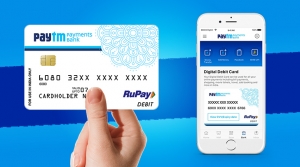The insurance market is largely untapped in India, offering huge potential for fintechs whose payments customers want a larger suite of financial services. 988 million Indians lack life insurance, about 75% of the population, according to Dvara Research.
Paytm's leadership has long sought to leverage insurance as a key revenue driver. The rationale for Paytm was that "every bank acquires customers for a savings or a credit product and slips in an insurance product as an addition," according to the Indian financial media Money Control.
Earlier this year, Paytm rebranded itself as "a financial services enabler." It added contactless dining - restaurant customers use the app to scan the restaurant's menu, order and pay the bill. The firm's parent company One97 Communications also offers some banking services through its payments bank (not including lending), mutual funds and insurance through Paytm-branded subsidiaries.
In early July, Paytm acquired the Indian insurance firm Raheja QBE for US$76 million. The Mumbai-based company has about 41,000 customers and sold 69,000 new policies in the fiscal year ended March 2020, according to Tech Crunch. Paytm had previously received a license as an insurance broker. This deal takes its insurance play one step further, allowing the company to develop its own insurance products.
The next step is for Paytm to develop the right products for its customers, whether individuals or merchants. There are numerous possibilities, from life insurance and vehicle insurance to products for their e-commerce and ticket-booking businesses.
It may be easier said then done. India's Insurance Regulatory and Development Authority (IRDAI) is known its strict supervision of the sector. Each new product requires individual regulatory approval.
Given Paytm has no insurance sector experience, it will need to spend money on product development and hiring a team of underwriters. Insurance is unlikely to be an immediate money maker for the company.
Perhaps Paytm's backers are content to let it burn cash to fund its insurance business for now. One thing is for sure though: Paytm, which lost US$549 million in fiscal year 2019, does not want to be the next of the wrong horses on which SoftBank has bet. And there surely will be more.

